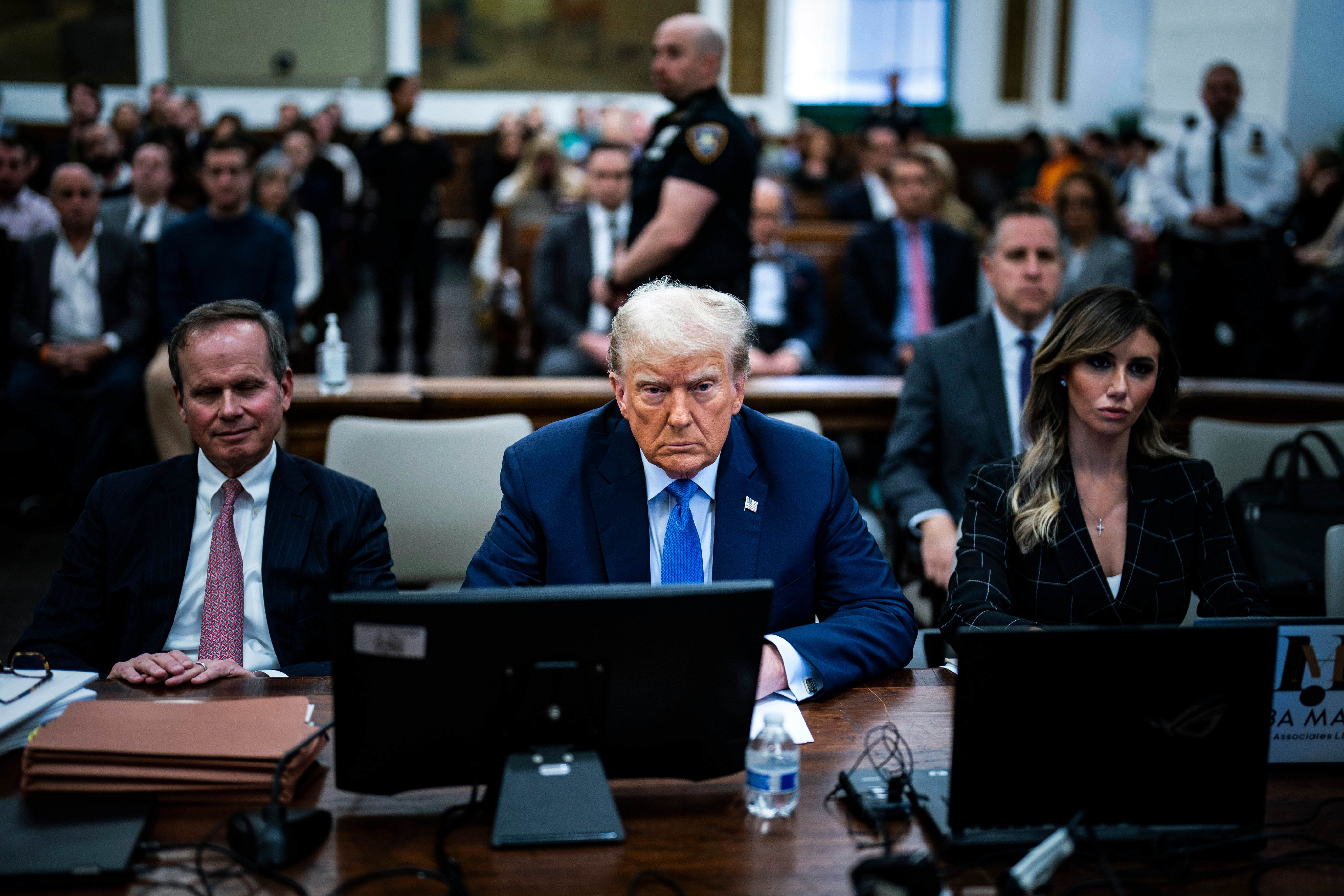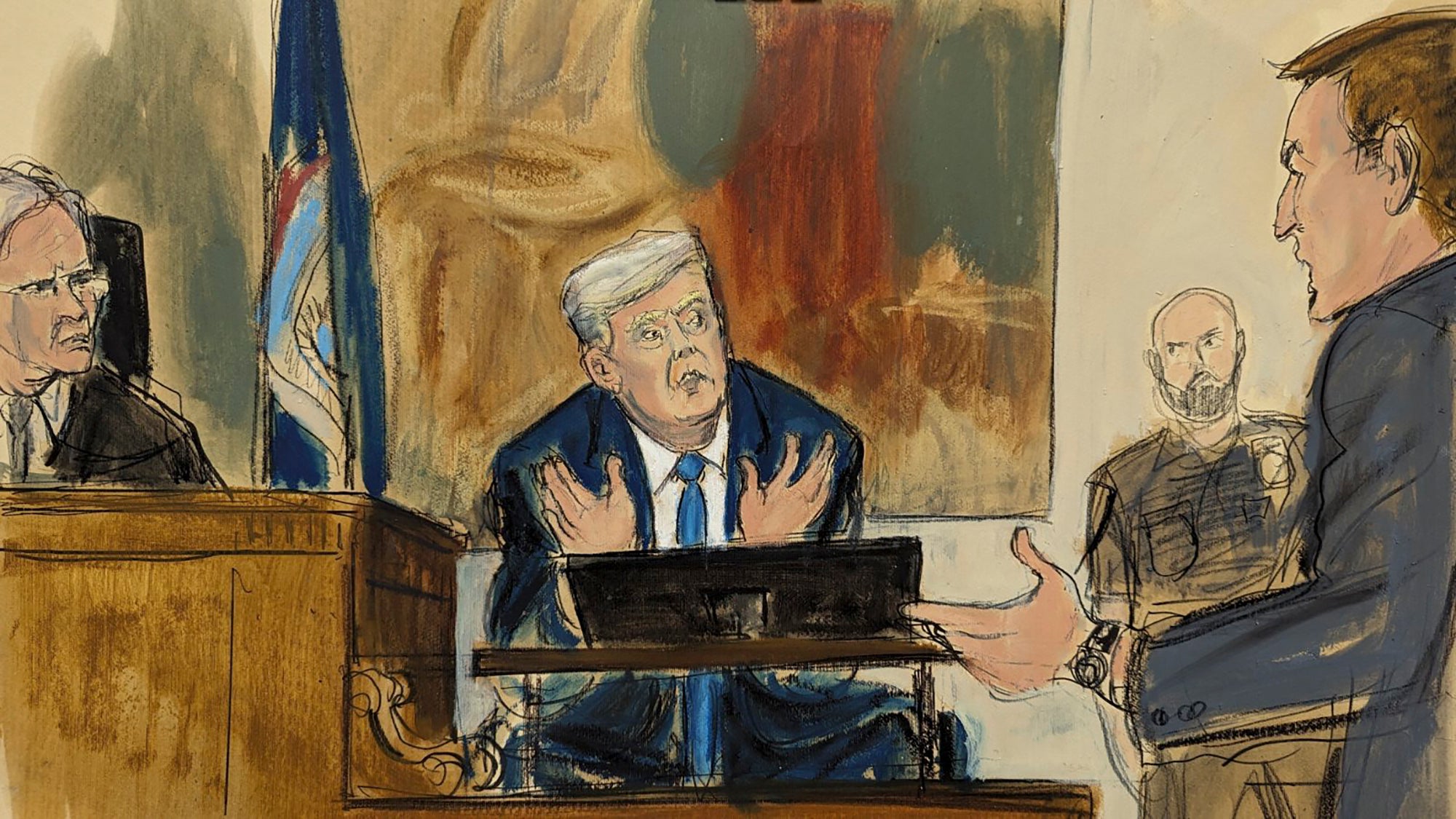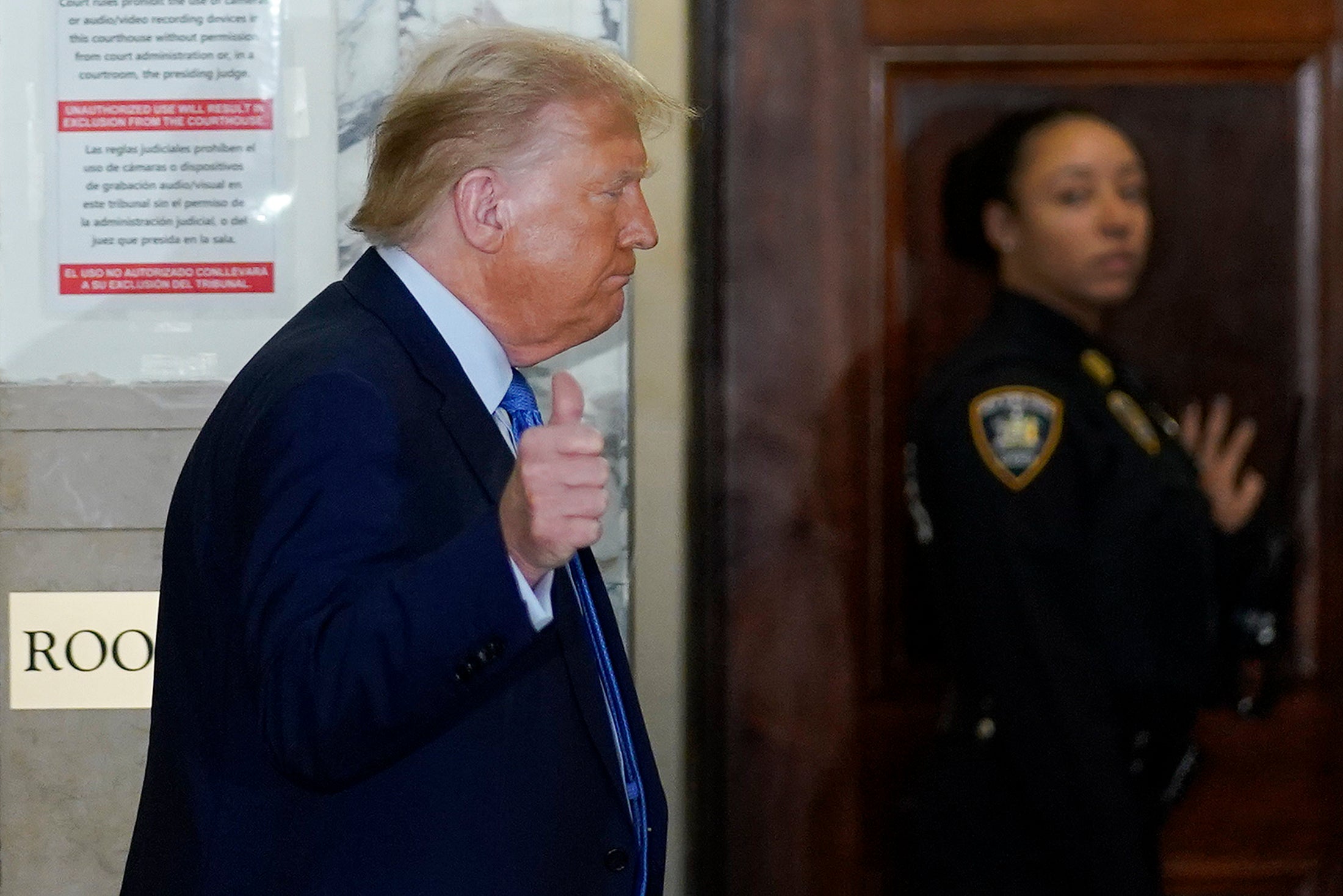Red-faced Trump rages at judge during historic fraud trial testimony
The former president’s attorneys are ordered to ‘control’ him for his evasive answers
Your support helps us to tell the story
From reproductive rights to climate change to Big Tech, The Independent is on the ground when the story is developing. Whether it's investigating the financials of Elon Musk's pro-Trump PAC or producing our latest documentary, 'The A Word', which shines a light on the American women fighting for reproductive rights, we know how important it is to parse out the facts from the messaging.
At such a critical moment in US history, we need reporters on the ground. Your donation allows us to keep sending journalists to speak to both sides of the story.
The Independent is trusted by Americans across the entire political spectrum. And unlike many other quality news outlets, we choose not to lock Americans out of our reporting and analysis with paywalls. We believe quality journalism should be available to everyone, paid for by those who can afford it.
Your support makes all the difference.The judge overseeing Donald Trump’s trial following years of fraud allegations repeatedly ordered his attorneys to “control” him for his evasive and meandering answers on the witness stand.
Within the first hour of Mr Trump’s testimony on Monday, an increasingly frustrated Judge Arthur Engoron and counsel with the office of New York attorney general Letitia James tried to get him to answer questions about his net worth and assets without giving speeches from the stand.
His answers are not only “nonresponsive, they’re repetitive”, said Judge Engoron, who warned that the former president’s ongoing rants could be negatively used against him in a case that endangers his business empire.
Over the next several hours, he accused Ms James of trying to “demean” and “hurt” him politically, slammed her as a “political hack”, called the case a “disgrace” and told a lawyer with Ms James’s office that he should be “ashamed” of himself.
Gesturing with his hands as he fumed on the witness stand, he turned his complaints towards the judge.
“You ruled against me and you said I was a fraud,” said Mr Trump, looking towards the floor in front of him. “He called me a fraud, and he didn’t know anything about me.”
Mr Trump’s testimony arrives in the sixth week of a trial that could collapse his family’s business and brand-building real-estate empire, following a lawsuit from Ms James that finds Mr Trump and his chief associates defrauded banks and insurers by inflating his net worth and assets by as much as $2bn a year over a decade.

The former president, wearing a dark suit and light blue shirt and tie, walked slowly with his gaze towards the floor behind his attorneys as he arrived inside the third-floor courtroom in lower Manhattan.
Ms James’s lawsuit seeks to recover $250m (£203m) in ill-gotten gains and to effectively block the Trump family from doing business in the state, dealing a potentially crushing blow to his Trump Organization umbrella.
On the stand inside Judge Engoron’s courtroom, Mr Trump berated the case, the judge and the attorney general as “Trump haters” in what he has baselessly characterised as a Democratic conspiracy against his return to the White House.
“Weaponisation, we call it,” he said.
The former president’s turn on the stand marks a historic first among his mountain of civil and criminal litigation against him as he seeks the Republican nomination for president in 2024.
Mr Trump already made a surprise, brief appearance on the stand two weeks ago, in the middle of a day of testimony from Michael Cohen, and after the former president was once again accused of violating a gag order that blocks parties in the case from disparaging court staff.
His day of testimony under questioning from counsel with the attorney general marks the first time a former president has testified as a defendant in decades.

Mr Trump’s adult sons, his former chief associates and allies turned state witnesses have already provided hours of testimony. Mr Trump, who will be followed by his daughter Ivanka Trump on 8 November, are the last witnesses presented by the attorney general.
His testimony arrived after two days of testimony from his sons Donald Jr and Eric Trump, who both claimed that they had nothing to do with the creation of their father’s statements of financial condition, the allegedly fraudulent documents at the centre of the case that were provided to financial institutions.
“They were just something you would have for yourself if you were borrowing money,” Mr Trump said on Monday.
“They were not really documents that the banks paid much attention to,” he added. “They just weren’t a very important element in the bank’s decision-making process. And we’ll explain that as the trial goes along. Crazy trial, as it goes along.”
He testified that those statements are “the opposite” of the attorney general’s case, and much larger than reported, with his allegedly inflated values for his properties omitting an unreported “brand value”.
“I became president because of my brand value. I sell books at levels that are incredible,” he said.
He described the attorney general’s case against him as Mr Trump “wrote up phony things and defrauded banks”.
“There was no victim, and then you say, ‘you defrauded them,’” he added.
Judge Engoron interrupted him to address his attorneys: “Can you control your client? This is not a political realm.”
“I’ve asked several times to answer the question. I don’t think we want editorialising. We’ll be here forever and will accomplish nothing,” he added.
“You’re in control of the courtroom. Not me,” Mr Trump’s attorney Christopher Kise replied.
At another point, Judge Engoron told Mr Kise: “I beseech you, to control him. If you can’t, I will.”
“This is a situation where you have on the stand a candidate for president of the United States … and so the most efficient way I would ask the court is to listen to what he has to say and you weigh it,” Mr Kise replied. “The court needs to hear what he has to say about these statements and why they’re reliable.”
The judge fired back: “These people are not here to hear what he has to say. He is here to answer questions. … Sit down, already.”
“This is a very unfair trial,” Mr Trump said while sitting on the witness stand. “And I hope the public is watching.”

Mr Trump’s testimony marks his first return in the courtroom since he abruptly walked out of proceedings after his attorneys failed to convince a judge to issue an immediate verdict in his favour, and after the judge fined him a second time for violating a trial gag order for his disparaging remarks about the judge’s chief clerk.
The judge, frequently targeted by Mr Trump on his Truth Social and in rants on the steps outside the courtroom’s doors, has already issued a summary judgment finding him liable for fraud. The bench trial, with the judge serving as both judge and jury, will determine how much, if anything, he is liable for, and whether the attorney general can succeed on six other claims, including falsifying business documents, insurance fraud, and conspiracy counts attached to each of them.
He repeatedly claimed that his properties and assets are actually much more valuable than what was listed, and that if there ever was anything wrong with them, he had disclaimers that told financial institutions that they should not be relied on.
In his September judgment, Judge Engoron rejected a defence that relies on those “worthless” clauses.
Subscribe to Independent Premium to bookmark this article
Want to bookmark your favourite articles and stories to read or reference later? Start your Independent Premium subscription today.

Join our commenting forum
Join thought-provoking conversations, follow other Independent readers and see their replies
Comments